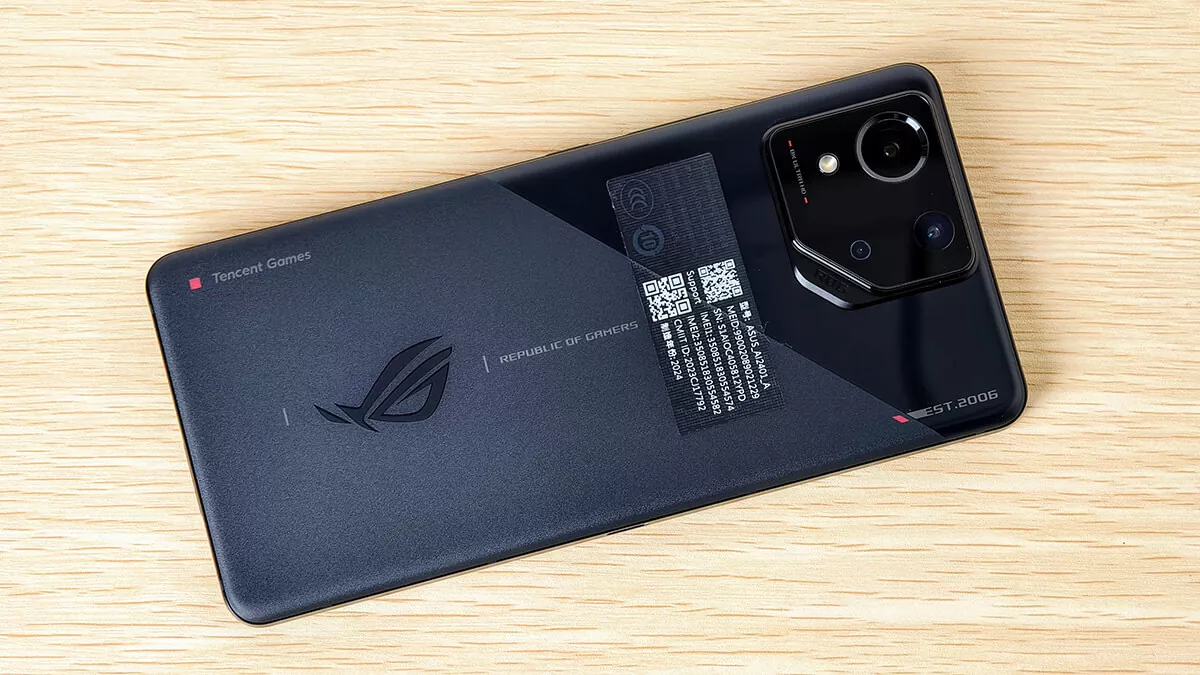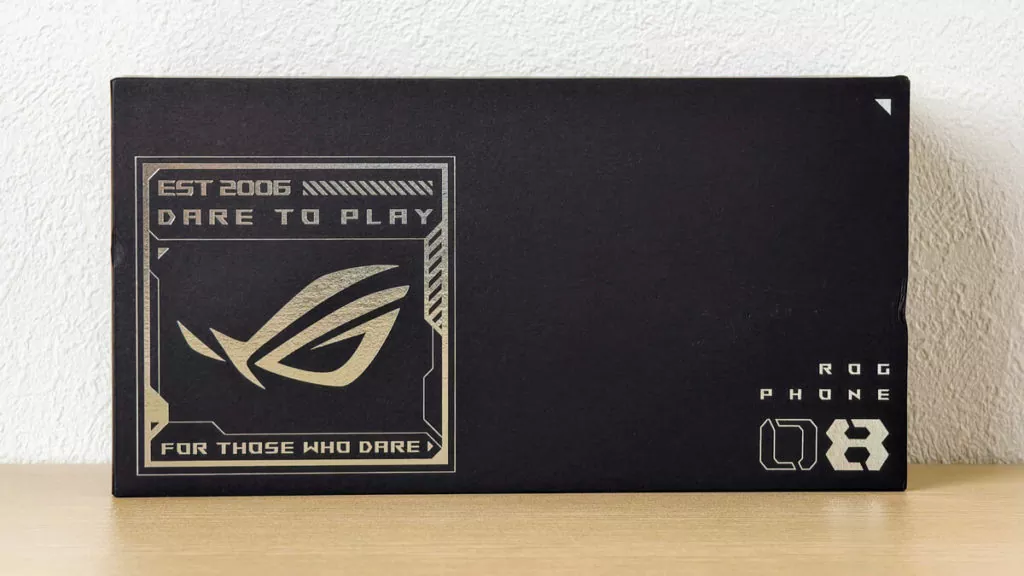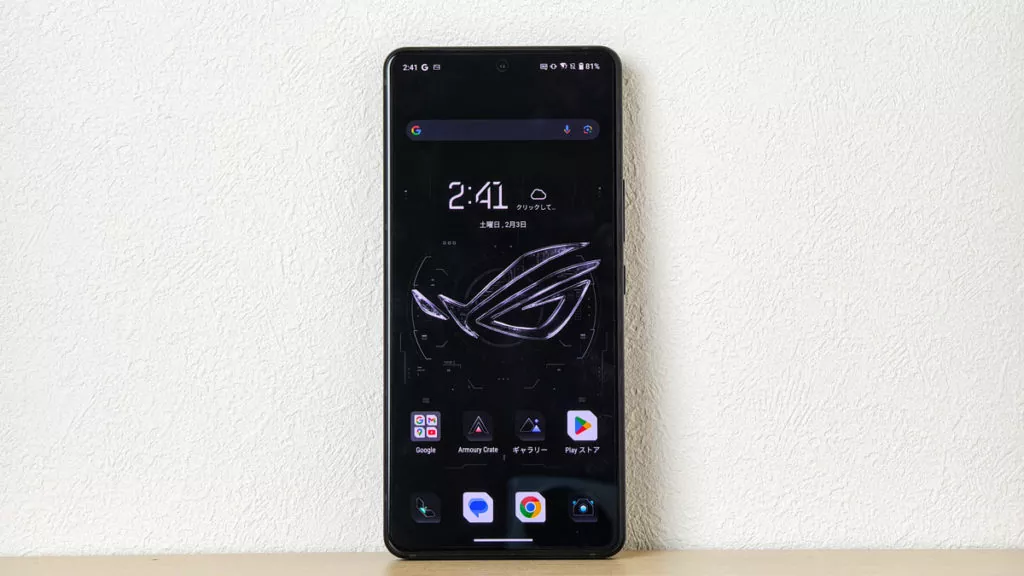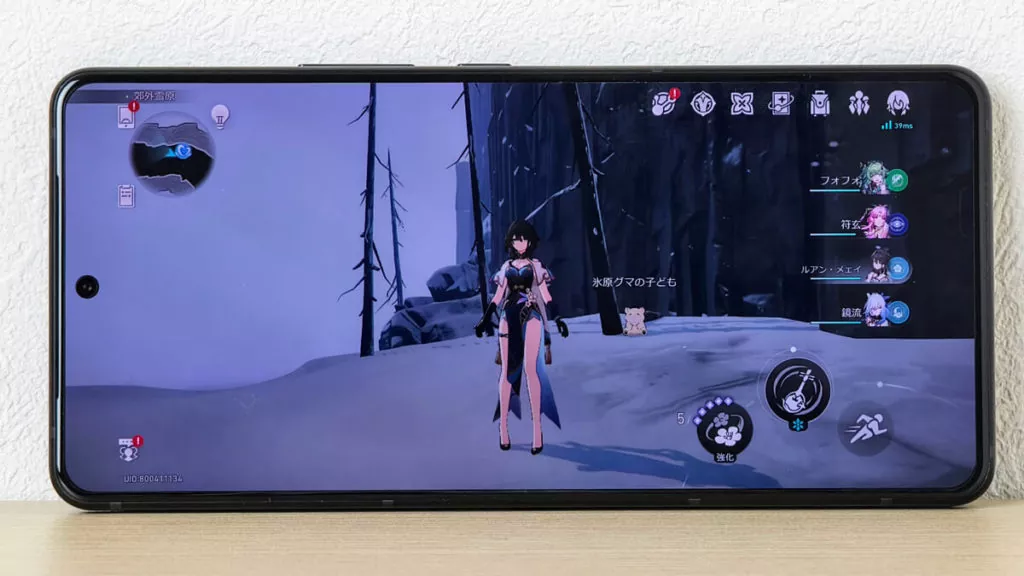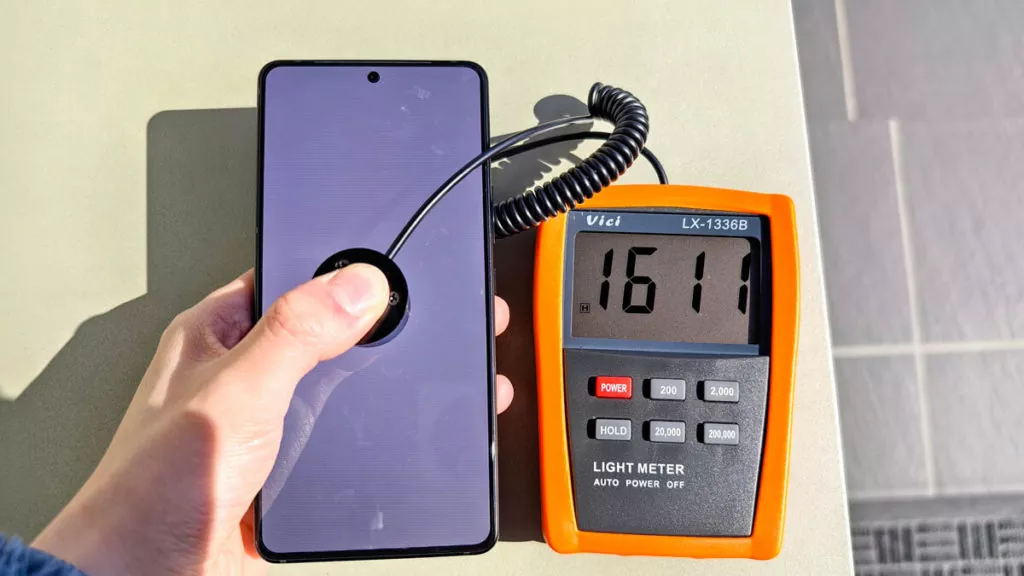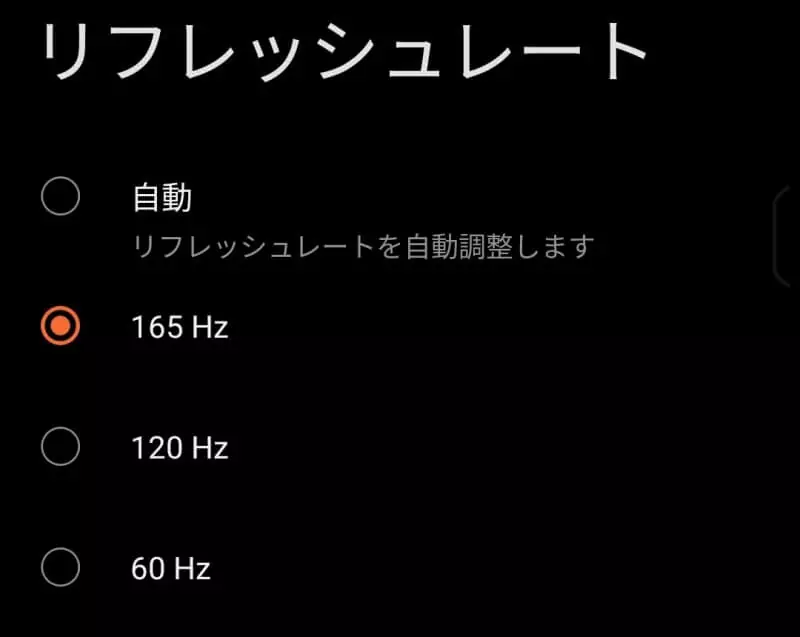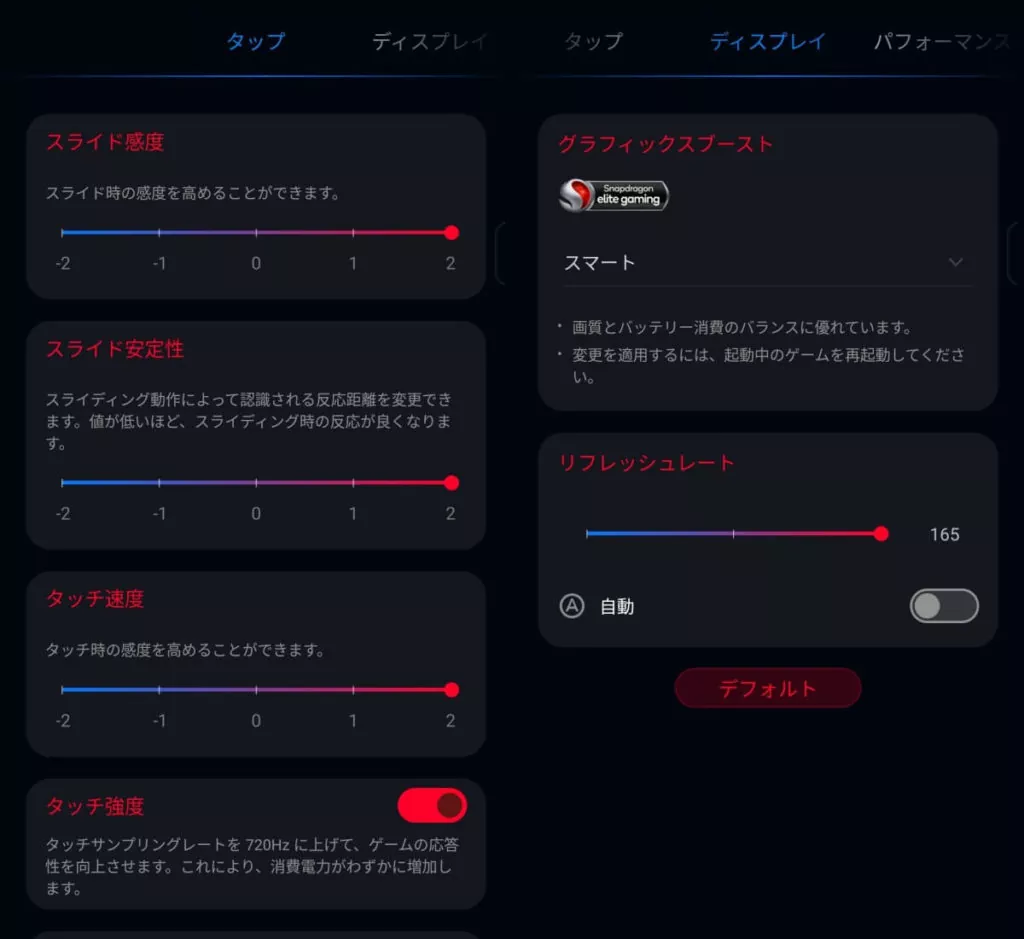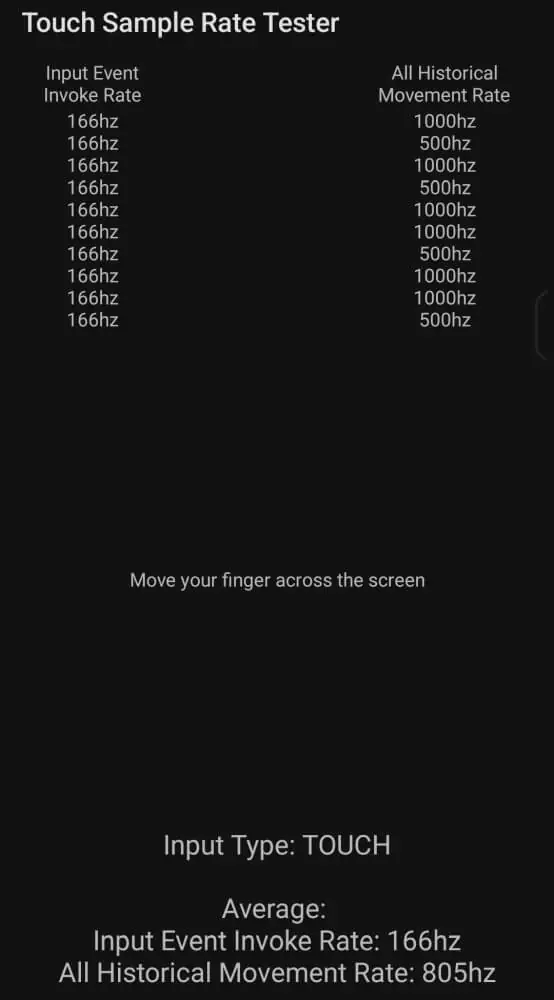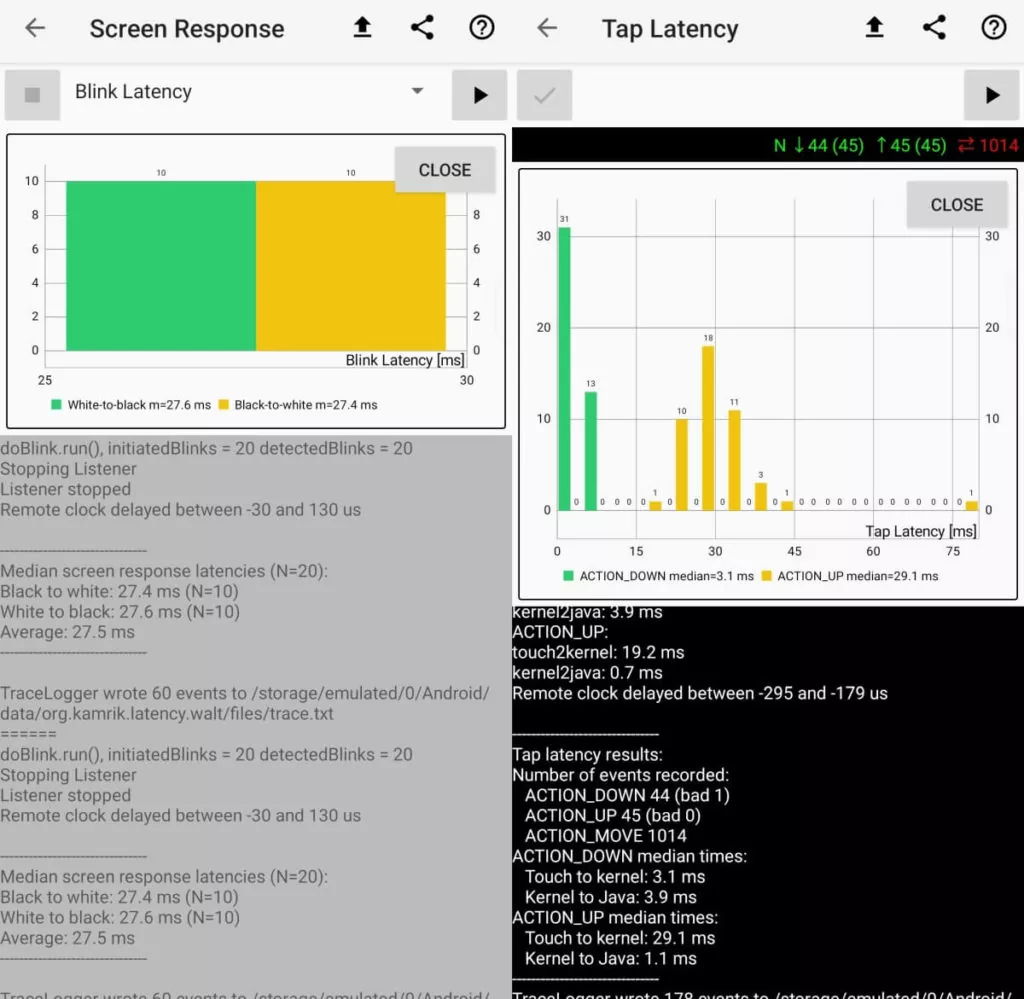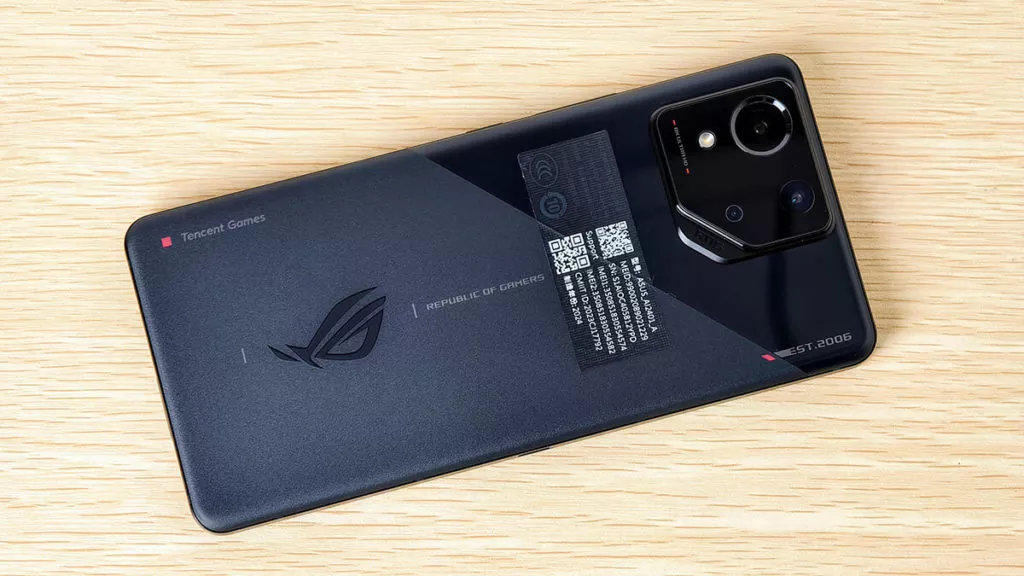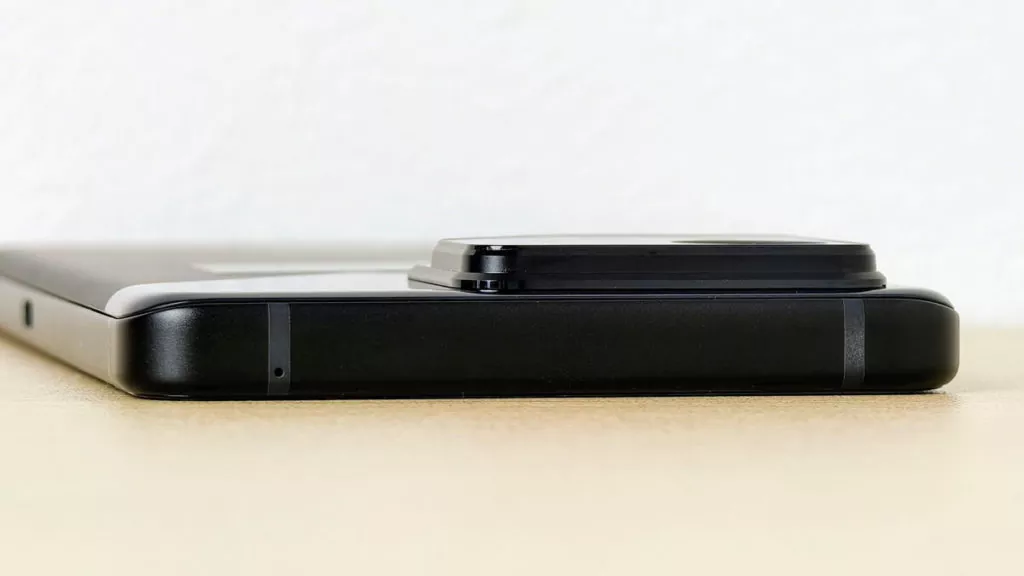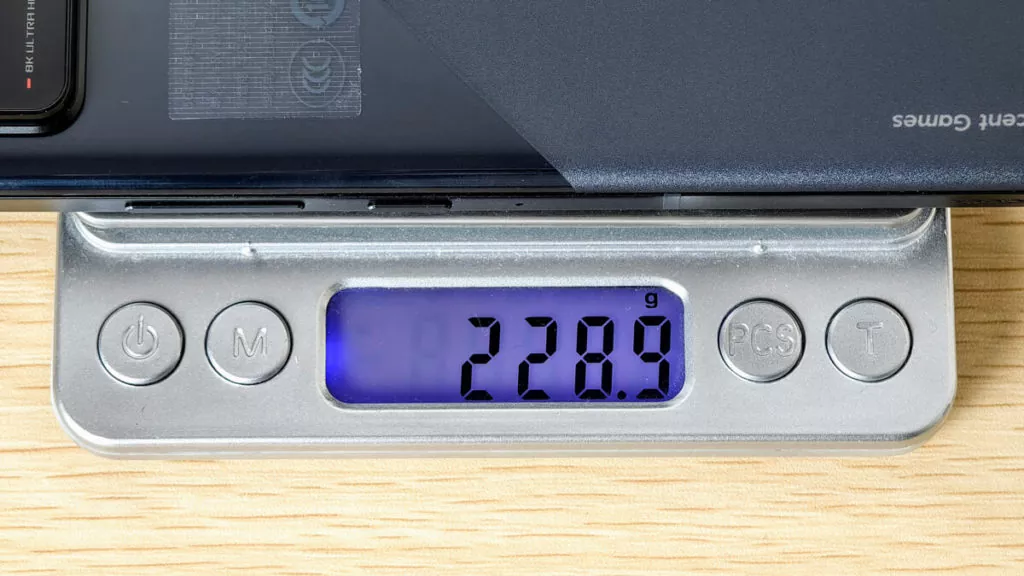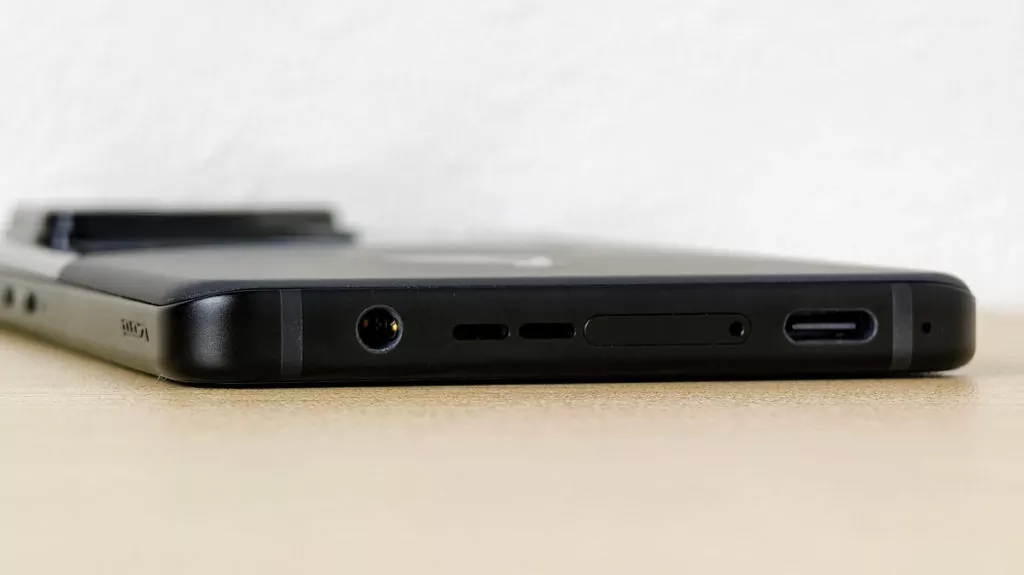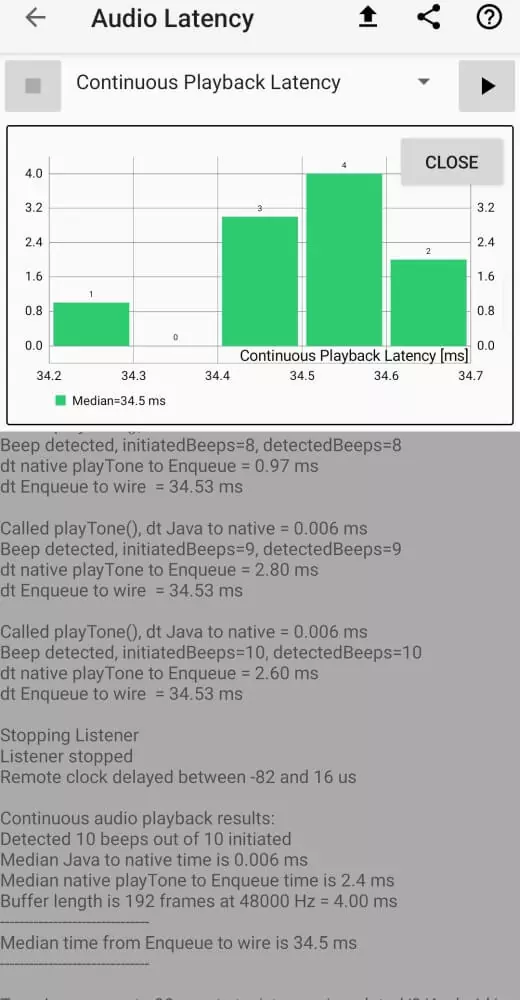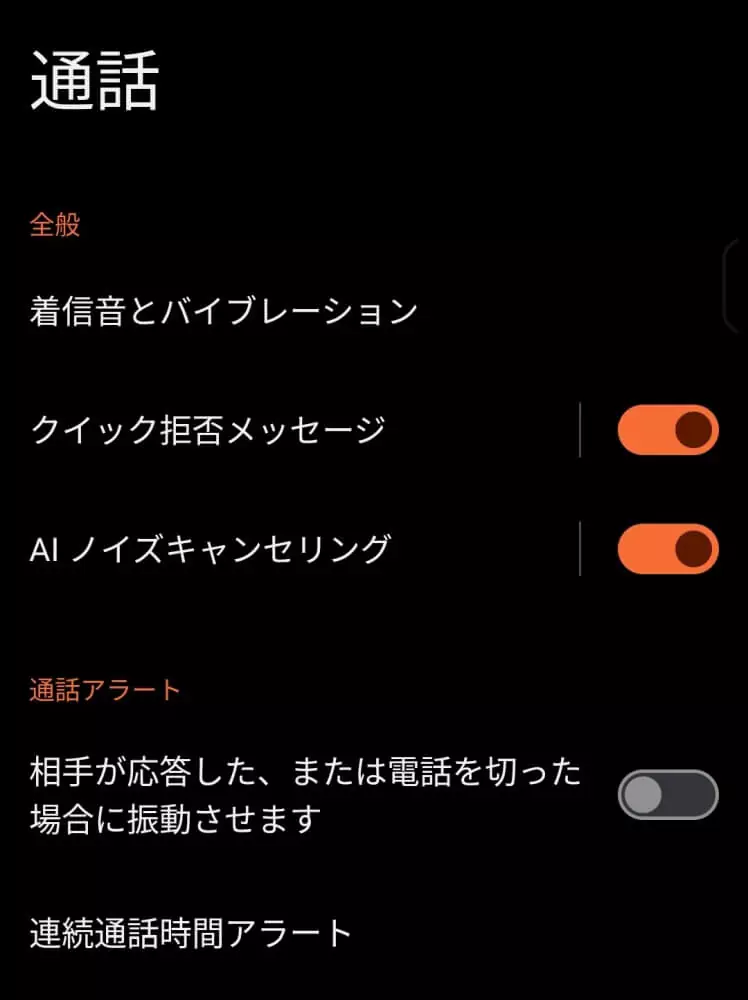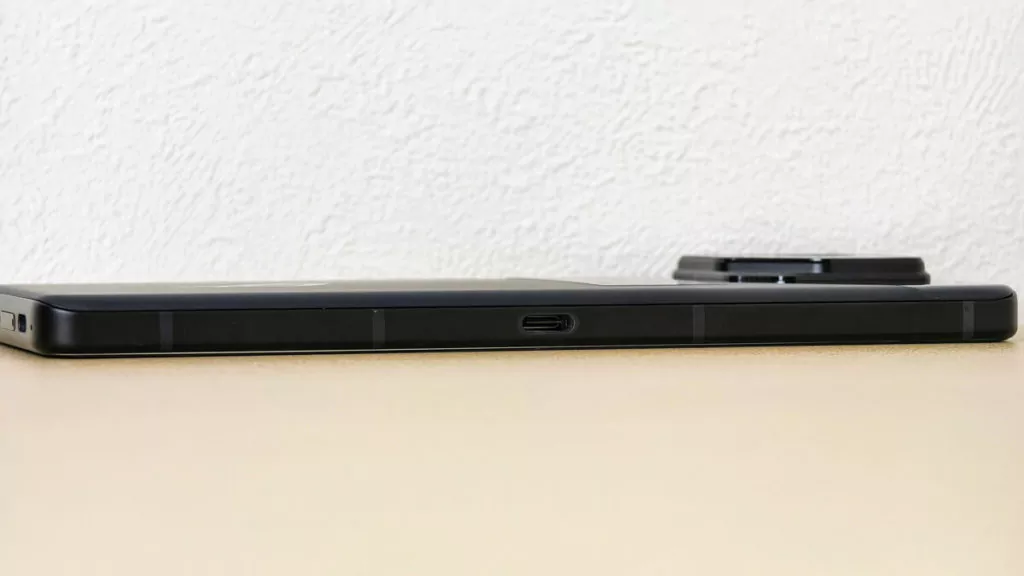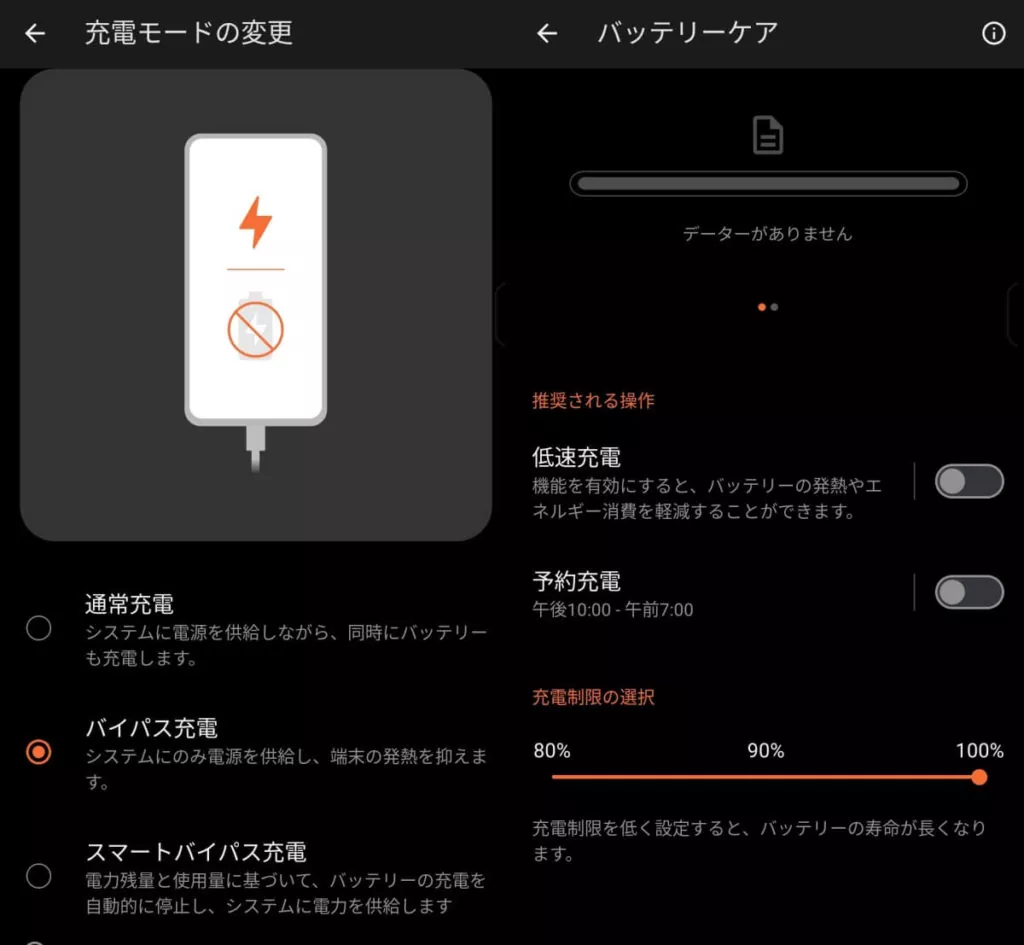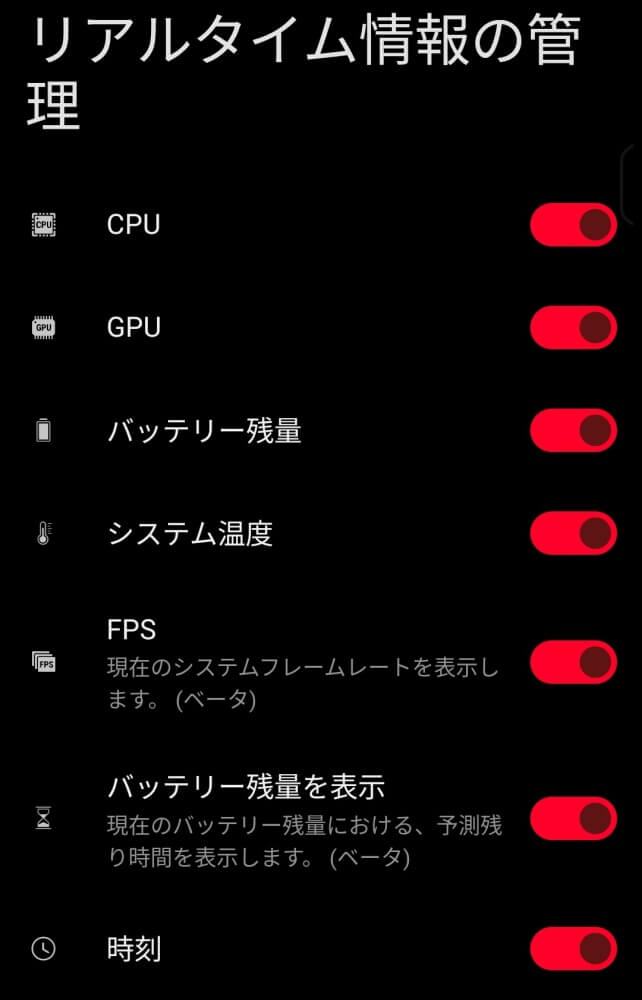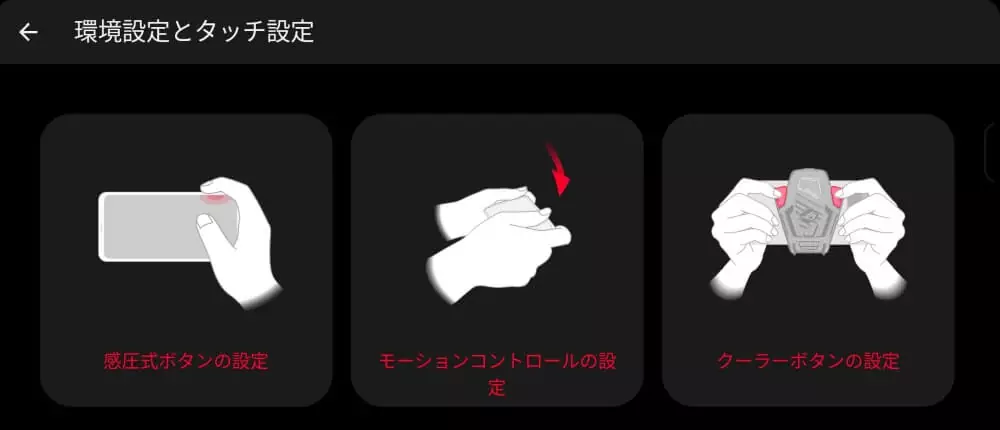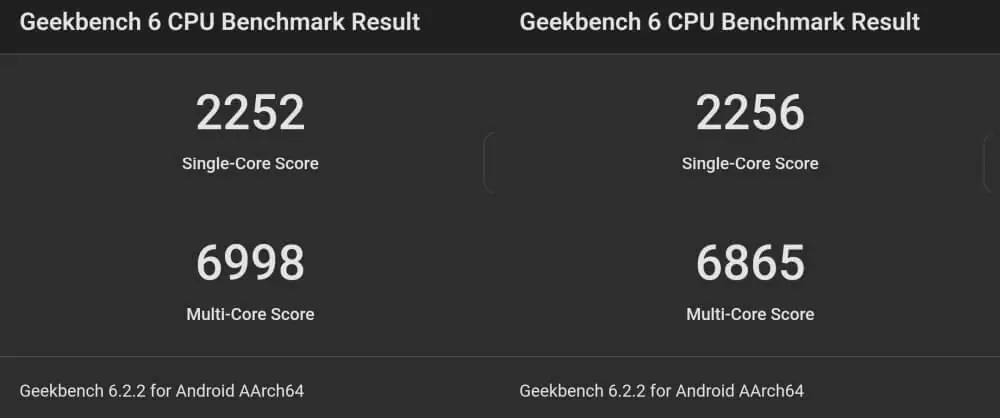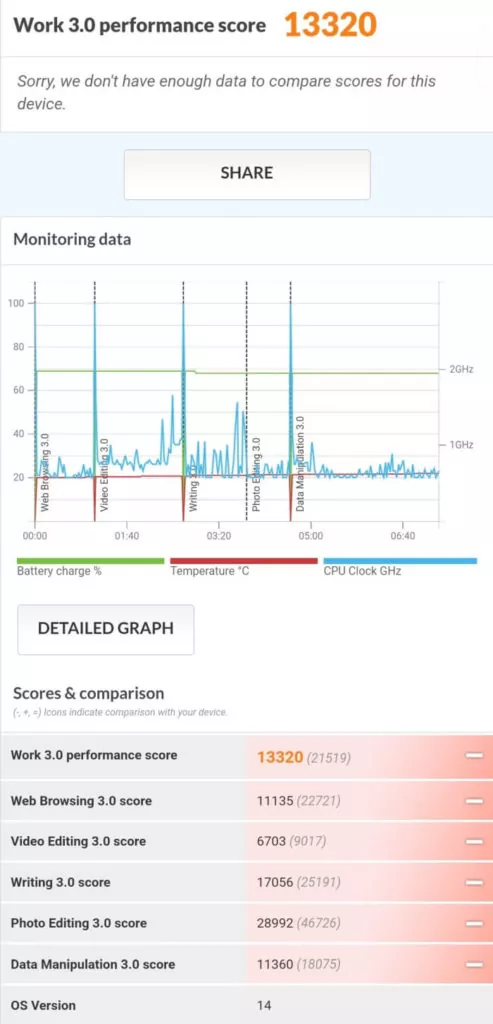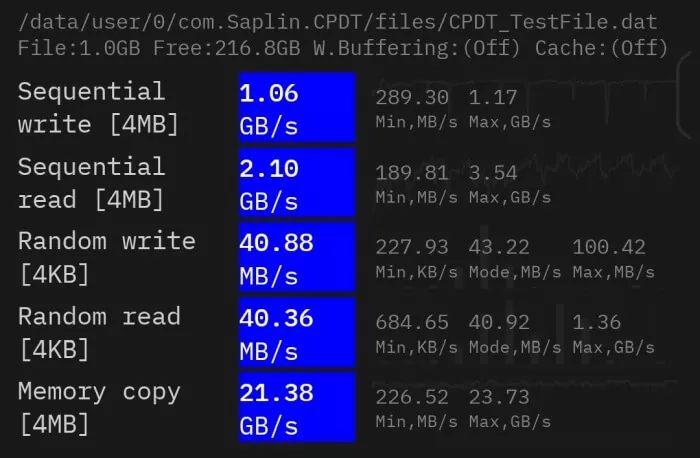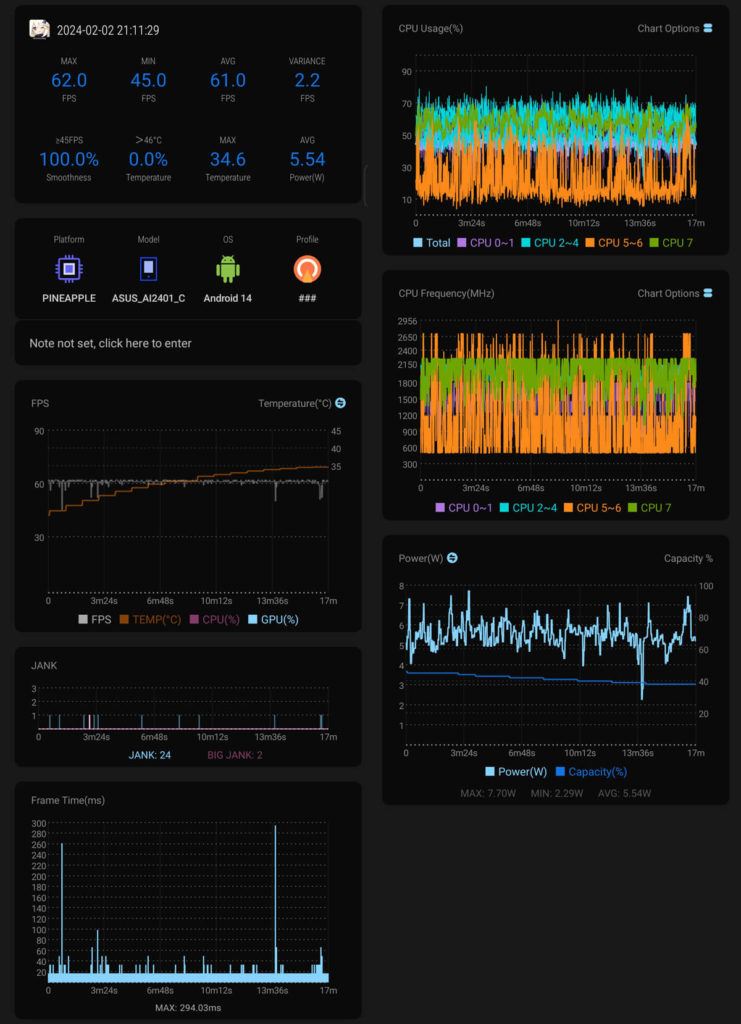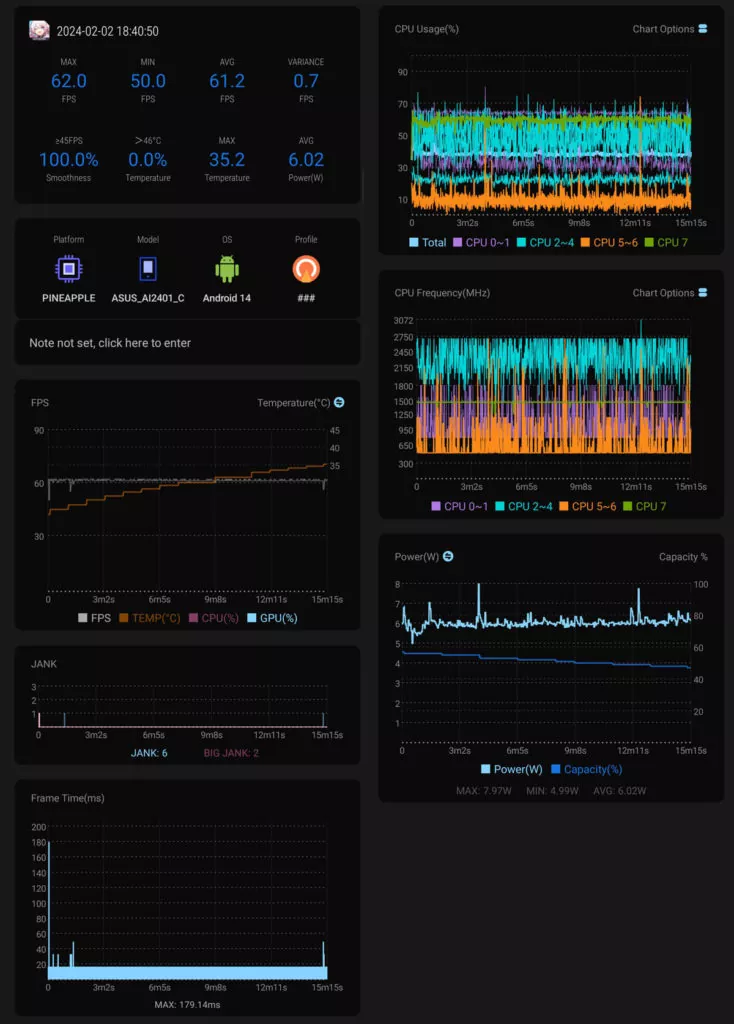I was loaned an ASUS ROG Phone 8.
Easier to use as main phone but less gaming functions
The ROG Phone 8 is a gaming smartphone powered by Snapdragon 8 Gen 3.
While the weight has been reduced from 239 g to 225 g and the thickness has been reduced to 8.9 mm, punch holes have been added and the front stereo speakers have been eliminated.
Although it is now easier to use on a daily basis, the loss of a major differentiating factor from other companies’ high-end smartphones is a blow.
- Snapdragon 8 Gen 3 that combines high performance and power savings
- Bright 1600-nit display
- 5,500mAh battery with wireless charging support
- Supports bypass charging
- USB 3.2 Gen 1 port for video output
- Equipped with 3.5mm earphone jack
- IP68 waterproof and dustproof
- Reasonable given the specs, but heavy.
- Additional punch holes in the way
- Front stereo speakers eliminated
| ROG Phone 8 (AI2401) | |
|---|---|
| OS | Android 14 |
| RAM | 12GB / 16GB LPDDR5X |
| Storage | 256GB UFS 4.0 |
| SoC | Snapdragon 8 Gen 3 |
| Display | 6.78inch FHD+ 2400×1080 Aspect ratio 20:9 165Hz AMOLED |
| Size | 163.8×76.8×8.9 mm |
| Weight | 225g |
| SIM | nano SIM + nano SIM |
| Main Camera | 50MP (OIS / Sony IMX890) + 5MP (Macro) +13MP (Ultra-wide) |
| Front Camera | 32MP |
| Battery | 5,500mAh |
| USB Port | USB Type-C (USB 3.2 Gen 1) x1 USB Type-C x1 |
| Bands | 5G SA: n3 / n5 5G NSA: n1 / n8 / n28a / n41 / n77 / n78 / n79 4G FDD-LTE: B1 / B2 / B3 / B4 / B5 / B7 / B8 / B18 / B19 / B26 / B28a 4G TDD-LTE: B34 / B38 / B39 / B40 / B41 / B42 / B48 WCDMA: 800 / 850 / 900 / 1700 / 1900 / 2100MHz CDMA: BC0 800MHz |
Index
Display: Easy to see even outdoors
The ROG Phone 8 has a 6.78″ FHD+ resolution display.
Samsung’s AMB678 is used, which is a flexible type, unlike the rigid type used in the past, and probably costs more.
Since flexible products tend to be lighter in weight, this is thought to play a role in reducing the weight of the main unit.
Instead of a thinner bezel, a punch hole has unfortunately been added.
Therefore, unlike the ROG Phone 7, the part of the game and video will be blocked.
For a normal high-end smartphone, the use of punch holes is normal, but for a gaming smartphone, where immersion in games should be of paramount importance, it is a fatal flaw.
Today we have under-screen camera technology (already adopted by REDMAGIC 9 Pro), and I would have preferred to see punch-hole-less rather than bezel-less.
When measuring brightness with LX-1336B during all-white HDR video playback with automatic brightness adjustment on, the brightness reached a maximum of 1174 nits.
Outdoors, the high brightness mode was triggered and we could see that the brightness was 1611 nits. It is quite easy to see outdoors during the day.
Refresh rate is 165 Hz supported, 120 Hz can also be selected.
In addition, when I executed settings put system peak_refresh_rate 1 in the adb shell, the data was immediately corrupted and I could not even make an adb connection, and had to initialize the system in recovery. It seems to be better to think that it is not possible to fix the refresh rate like other models.
For apps configured as games, 720Hz touch sampling rate can be enabled in custom settings.
Other settings include slide sensitivity, MSAA, and maximum refresh rate.
When measured with the Touch Sample Rate Tester at a 165 Hz refresh rate with the touch sampling rate set to 720 Hz, the Input Event Invoke Rate was 165 Hz for both single and multi-touch, and the Movement Rate was around 800 Hz.
At 165Hz refresh rate + 720Hz touch sampling rate, touch latency measured by WALT Latency Timer was 7ms and screen drawing latency was 27.5ms for a total of 34.5ms.
Rear: Increased camera thickness
The back is two-tone, and the area with the logo is resistant to fingerprint smudges.
While the body is thinner, the protruding camera is larger, so it rattles more when placed on a desk than the ROG Phone 7.
The REDMAGIC 9 Pro, which is also 8.9 mm thick, is in no way inferior to the REDMAGIC 9 Pro, which eliminates the protruding camera and has almost zero rattling.
It weighs 228.9g.
Although lighter than the ROG Phone 7, it is still heavy, and the ROG Phone 8 is barely as heavy as the REDMAGIC 9 Pro with a 6,500mAh battery, even though it only has a 5,500mAh battery.
If the main goal is to make it easy to use in everyday life, it should be lighter, and if that is not possible, it would have been better to give up on light weighting and specialize in games instead of going halfway.
The image quality of the camera is good enough.
Speakers: Realistic sound
The ROG Phone 8 is equipped with stereo speakers.
Previously equipped with front stereo speakers, the ROG Phone 8 has regressed to asymmetrical stereo speakers, just like a regular high-end smartphone.
Equipped with a 3.5mm earphone jack, wired earphones can be used without conversion adapters.
Bass is strong and seems to have depth. Vocals are heard to jump forward, although highs tend to be a bit muffled.
The audio output delay was 34.5 ms when measured with the WALT Latency Timer.
It is equipped with DIRAC, which allows you to change the equalizer and sound mode to your liking.
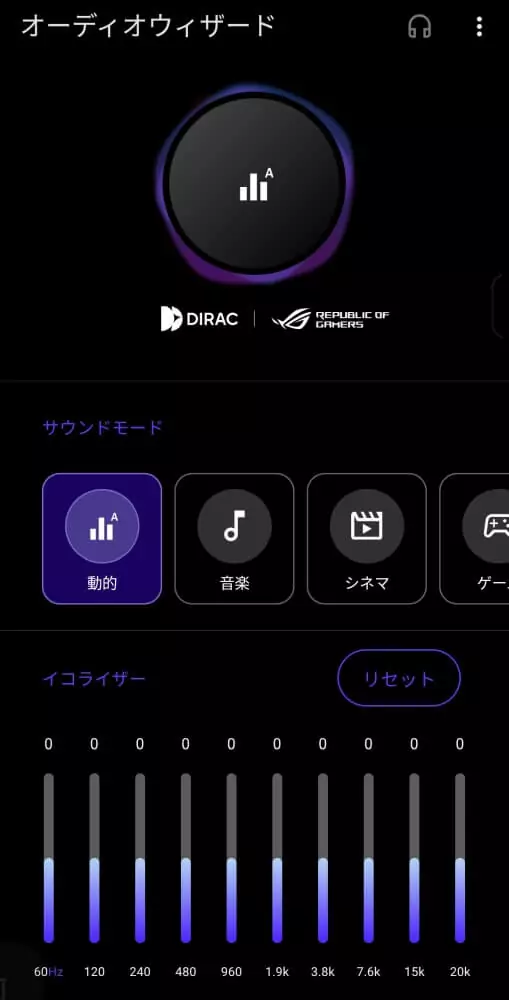 Noise canceling is also available for calls, allowing for clear calls.
Noise canceling is also available for calls, allowing for clear calls.
It can also vibrate based on the duration of the call, which may be useful if you are on a plan such as free 5-minute calls.
Ports: 2 USB-C ports
The ROG Phone 8 is IP68 waterproof and dustproof, so a little water damage is not a problem.
There is also a USB Type-C port on the side so that cables do not get in the way when you want to charge or use USB Type-C earphones when you hold the device horizontally.
Bypass charging can be used to reduce heat generation and load by directly supplying power without charging the battery.
There are also a variety of options to extend battery life, such as slowing the charge, letting the battery charge at a specified time, or limiting the charge to a specified %.
There is also a function that displays how much battery life is left when playing games, which is very useful and unobtrusive.
The power and volume buttons are located on the right side.
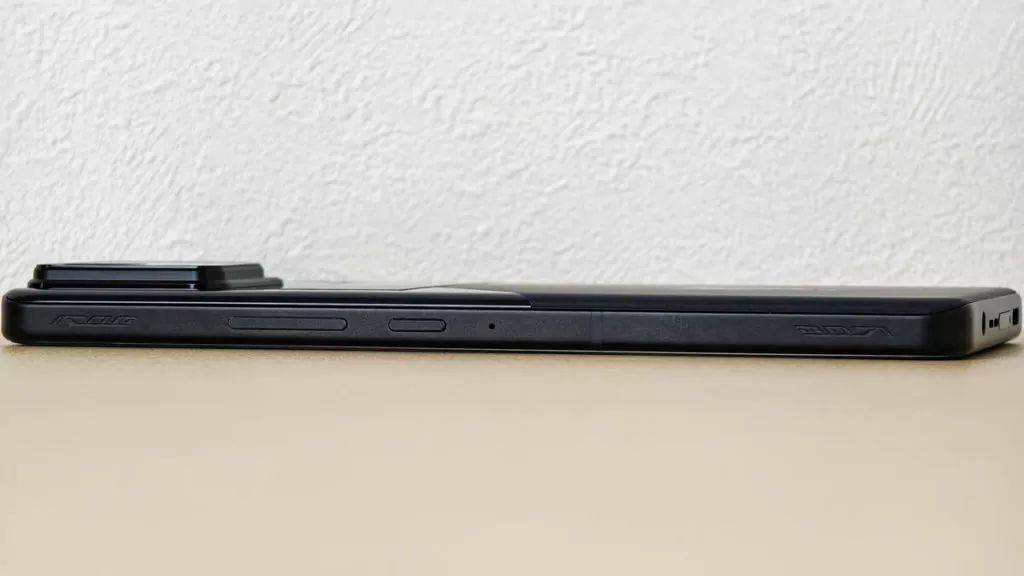 At the end is a shoulder trigger, which allows you to operate the controls without touching the screen.
At the end is a shoulder trigger, which allows you to operate the controls without touching the screen.
It allows you to quickly press on areas that would normally be difficult to operate, and depending on the game, you can proceed one-handed.
There is also “motion control,” in which you can move it up, down, left, right, etc. to cause an action.
Performance: High performance and power saving
The ROG Phone 8 is powered by the Snapdragon 8 Gen 3 and can play heavyweight games such as Genshin and Honkai: Star Rail at 60 FPS with plenty of room to spare.
In Geekbench 6, the package name disguised version (i.e., not affected by the manufacturer’s illegal boost) had single-core 2252 and multi-core 6998, while the normal version had single-core 2256 and multi-core 6865.
X mode (performance mode) is turned on by itself when the benchmark application is launched, but you will be notified and can turn it off manually. Changing the behavior only during benchmarking is prohibited by the Terms of Use at UL and other benchmarks, so I measure with it turned off.
The Wild Life Extreme Stress Test in 3DMark with disguised package name showed a score of 4827 to 3321, with a temperature increase from 23°C to 39°C (16°C increase) and battery consumption of 11%.
Compared to other 8 Gen 3 smartphones, the performance seems to be adjusted to be just a little more modest in normal operation, perhaps to emphasize power savings.
Even so, the lowest value is about the same as the peak value of 8 Gen 2, and there is still plenty of room even after the heat is generated.
PCMark Work 3.0 (package name disguised), which measures performance in everyday use such as document manipulation, scored 13320.
It has UFS 4.0 storage and LPDDR5X memory.
Both read and write speeds are top class.
Playing Genshin in X mode, highest quality, 60FPS setting, Fontaine (underwater to land) and measured with Scene 6, the average framerate was 61.0FPS at power consumption of 90.82mW per FPS.
Battery temperatures rose to a maximum of about 34.6°C.
Honkai: Star Rail averaged 61.2 FPS after 15 minutes of play at the highest quality.
Conclusion
- Snapdragon 8 Gen 3 that combines high performance and power savings
- Bright 1600-nit display
- 5,500mAh battery with wireless charging support
- Supports bypass charging
- USB 3.2 Gen 1 port for video output
- Equipped with 3.5mm earphone jack
- IP68 waterproof and dustproof
- Reasonable given the specs, but heavy.
- Additional punch holes in the way
- Front stereo speakers eliminated
The downgrading of the device in an attempt to half-heartedly improve the ease of everyday use has resulted in downgrades that detract from the gaming experience, such as “punch holes added,” “front speaker eliminated,” and “battery capacity down 500mAh,” but there are no complaints in terms of performance and battery protection, including bypass charging, has been put in place, so the device will be usable for a long time.
On AliExpress, a Chinese version of the device with a global ROM can be purchased for $664.95 and up.
